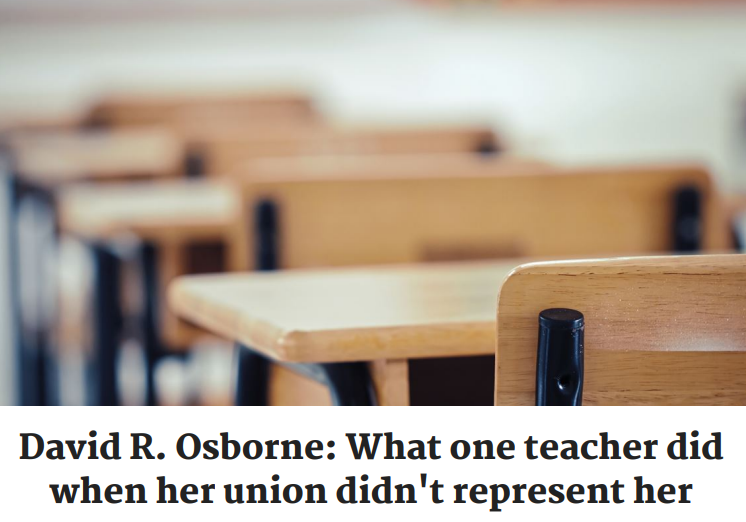Americans for Fair Treatment CEO David Osborne was featured in the Pittsburgh Post-Gazette:
When Alea DelPrete joined the faculty of Wilmerding’s new Westinghouse Arts Academy, she knew she was walking into a special place. The public charter high school embraces both traditional learning and rigorous arts study in a way rarely seen outside universities.
As a design teacher, Alea looked forward to sharing her passion and expertise with students bursting with creativity. She never expected to be at the center of a battle between her colleagues and her teachers union, let alone win.
The Pennsylvania State Education Association (PSEA) unionized teachers and staff at Westinghouse Arts Academy in April of 2021, with promises of pay raises and improved benefits. But 16 months later, the union has been unable to negotiate a contract with the charter school. Instead, they’ve turned teachers against each other and used core elements of the arts curriculum as bargaining chips.
The Westinghouse teachers aren’t the first educators in their state to have their workplace upended by a union supposedly dedicated to working on their behalf. The PSEA is notorious for ignoring the needs of its membership. Last year, the union spent only $1 out of every $5 of dues actually representing its members. The other $4 went to overhead, politics and lobbying.
To be fair, PSEA is not alone. Its spending is in line with the larger trend of state and national unions increasingly spending more time and money on political activity than working for the needs of their members. There was also a particular source of tension between the Westinghouse staff and the union. The PSEA has been actively lobbying in Harrisburg against the expansion of charter schools like Westinghouse. The faculty naturally became concerned when contract negotiations dragged on and on.
At best, their union was sending the signal that these members’ concerns simply weren’t a priority. But it wouldn’t have been far fetched to believe that the PSEA would be just as happy to see the school shut down. Finally, Alea and her coworkers decided they’d had enough. Earlier this year, they started the uphill battle of removing the union from their workplace. But the teachers found themselves up against a multimilliondollar organization that has fought against decertification campaigns for years. They have a full-time staff trained and paid — with union dues — to squash efforts like Alea’s.
Alea and her colleagues, on the other hand, are full-time teachers or school employees. They had to devote their nights and weekends to organizing, without any of the resources the union commands. And they did. Alea asked the NLRB for an election to decertify the union. That would end the union’s negotiations and return power to employees to order their own workdays and even seek pay raises.
And when the votes were counted on August 18, a majority of Alea’s coworkers decided that the union was unnecessary–or perhaps unfit to
represent them. Against all odds, Alea and her colleagues won the power to negotiate for themselves.The teachers at Westinghouse are fighters. They overcame a lot to get here. But it shouldn’t have to be this hard to remove a union that acts against its members’ best interests. There is a process in place in some states that creates a more fair and accountable relationship between unions and their members: instead of de-certification, it’s called re-certification. Holding elections to recertify workers’ relationship with their union, at least every few years, would help to balance the scales and ensure teachers like Alea are treated fairly.
Union recertification ensures the majority of a bargaining unit supports theincumbent union through automatic, recurring secret ballot elections. It puts pressure on the union to prove its worth to the membership. In the same way that elected officials from city councilors to the president of the United States must periodically face the voters at the ballot box, unions should be held accountable to the workers they claim to represent.
Naturally, unions are dead-set against recertification, which they see as a threat to their monopoly over workplaces after the initial election. But periodic elections would bring much needed accountability in an environment virtually free of competition.
Union recertification laws are a welcome expansion of workers’ rights, and it’s been tried before. In Wisconsin, for example, nearly two-thirds of unions subject to recertification have retained their status as union representatives, and by last count, those unions seem to have earned the support of employees.
In Pennsylvania, lawmakers are considering an amendment to state labor laws that would institute similar requirements. Alea and her colleagues at Westinghouse Arts Academy are paving the way for other educators in their state to get a fair deal.
David R. Osborne is CEO of Americans for Fair Treatment
